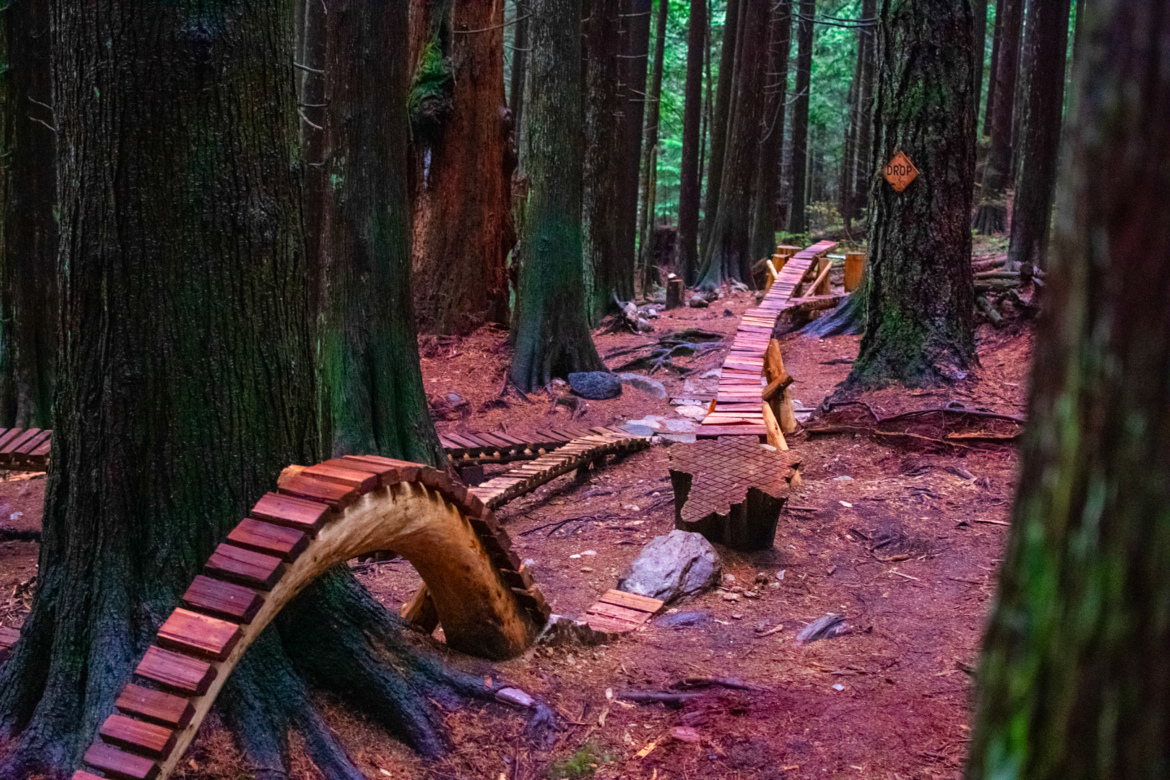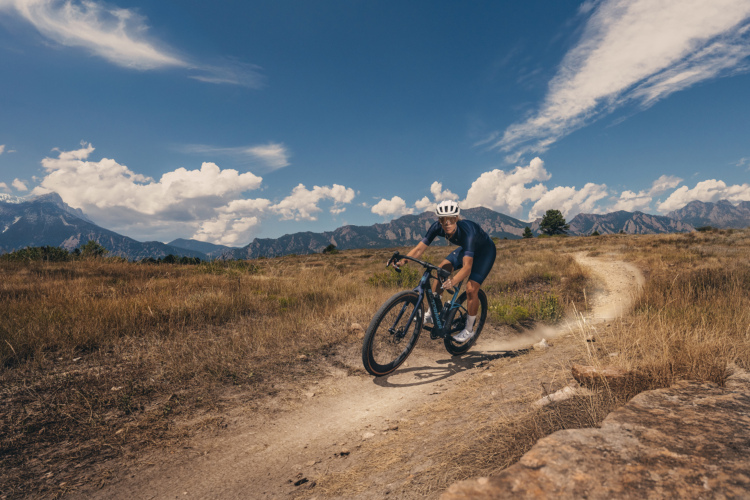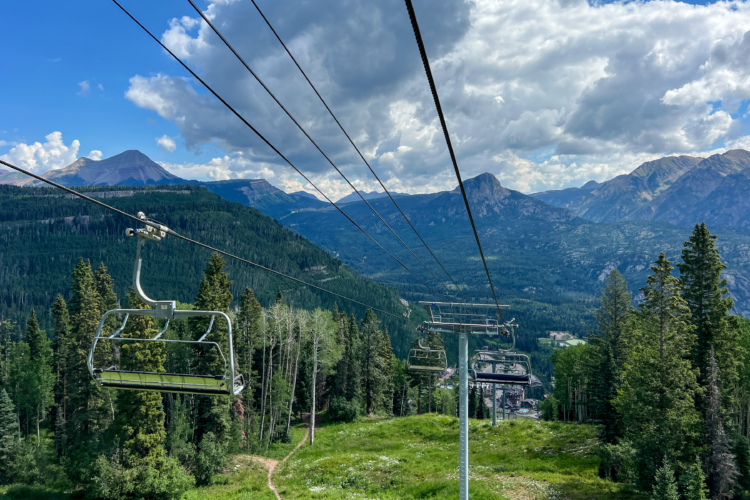
Skinnies are one of the original freeride features, popularized in early mountain bike videos in the late nineties and early noughties. They originated right here, on Vancouver’s North Shore, and the term “North Shore” came to be used globally to describe those elevated wooden features. Over time, though, skinnies have fallen out of favor, even here where the legacy began. Today, the vast majority of riders favor fast, flowy trails.
The thing is, skinnies never really left the North Shore, though many fell into disrepair. Thankfully, there’s a small but dedicated crew keeping the dream alive on trails such as Ladies Only, Upper Oilcan, and in the case of this article, Pipeline on Mount Fromme. Pipeline has been around for 22 years and is a black diamond trail known for its technical, janky features and woodwork aplenty. It embodies classic North Shore riding, and unlike some trails that have been left to return to the earth, Pipeline has seen a ton of fresh work, including renovated — and entirely new — woodwork.

The Pipeline trail crew consists entirely of volunteers and, in recent years, has grown substantially to include a diverse range of ages and riding skills. I caught up with builder Chris Connor to get the inside scoop on the Zen Garden build.
The trail crew has been committed to giving Pipeline the love it deserves, and the trail has gone from strength to strength. 22 years of riding and exposure to the elements takes its toll on a trail, and a lot of the original wooden features were getting a little long in the tooth. In the last five years, the Pipeline trail crew has replaced or revitalized almost every wooden feature. Starting with the Fender Bender up top — a snaking wooden boardwalk with a teeter-totter halfway through — they’ve worked their way down almost the entire trail at this point.
“Most of the crew was involved in the rebuild of the Fender Bender feature at the top of the trail, which was completed in 2021,” said Connor. “That feature was essentially a nearly identical rebuild to the original one. The next one we did was to build a 125-foot-long roller coaster in the fall of 2022. […] With the Zen Garden completed, Pipeline now boasts around 1,000 feet of woodwork.”

The Zen Garden dramatically expands upon the original feature it replaces, which was essentially a flat section of boardwalk about 100m long. The original wood was quite old, green, and slippery, and likely quite rotten.
Nestled in a damp, green canyon deep in the forest, the Zen Garden immediately feels like a special place. The Garden begins with the first skinny, which leads to the “Contemplation Station.” Here, riders have a choice of three lines. The middle line is single black, the right line is double black, and the left line is triple black. The single black option contains nothing unexpected: it’s a couple of feet wide with some swooping corners and rollers. This line is a modest challenge, but it’s straightforward enough for those familiar with The Shore.
The challenge ramps up with the double black line. The line is relatively low risk, being close to the ground. However, make no mistake — it’s difficult, with skinnies barely wider than two tire widths, though it was designed to be ridden without having to make any nose pivots. The triple black line is a legitimate challenge for riders of all skill levels, elevating those skinny lines and adding roller coasters and g-outs to throw riders off — literally. All three lines end at the original teeter-totter, which has been fully rebuilt with an optional skinny ride-around.



All three lines crisscross numerous times in an almost poetic way at several elevated wooden platforms artfully filled with rocks to create perfect-looking floating trail junctions. This allows riders to really mix things up, and those with enough skill can turn it into an endless loop. Officially opened on October 26, there have already been numerous POV videos of high-profile riders attempting the unique challenge and racking up thousands of views, partly due to the challenge of the features and also to the incredibly meticulous and photogenic nature of the build.
Connor estimates that around 1,400 volunteer hours went into building the Zen garden, with the actual construction spanning about six months, starting in April of this year. That doesn’t paint the full picture, though, with many hours of unglamorous work invested in planning, gathering and processing materials, and more.
But before any trail is built, it has to go through a planning and approval phase. Since Pipeline is on District of North Vancouver (DNV) land, any major trail changes require permission from the District.
“We had permission to rebuild the original feature, but we aimed to completely re-imagine it,” said Connor. “Once we settled on our vision, we roughly flagged the lines, took photos, and created concept overlays in MS Paint to visualize the final design. By then, we had already gathered over forty 10-foot cedar stringers for the rebuild. With all this information, we submitted our proposal and received approval relatively quickly. After a walkthrough with the local trail manager from the District of North Vancouver, we were given the green light.”

Reflecting on the planning phase of the build and how they ended up with three completely different lines, Connor explains, “we couldn’t agree on which line to build, so we built them all!”
While the main single black line had to fit in with the general character of the trail and be fairly rideable, Connor wanted to build something truly gnarly and old-school to really challenge riders. Fellow builder David Bayley wanted something tight, technical, and skinny but also low to the ground with lower consequences. In the end, they decided that they had the resources and manpower to build all three lines, so that’s what they did.
Connor told me that while the actual build phase of the Zen Garden took around six months, the entire project took a couple of years, with significant time spent gathering and processing materials to build the bridges.
“Many ask where we source our materials. We’re proud to say it’s all locally sourced from around the build site,” said Connor. “Winter windstorms often bring down ideal pieces in the vicinity, and we carefully scout the area afterward, venturing farther afield as needed. We document each potential find with photos and GPS tags, then submit them to the trail manager for approval. Once cleared, we process and carry the materials to the site. We also reclaim nails from old woodwork when possible to keep the cycle going. Our trail crew has an impeccable track record of constructing some of the largest wood features on the Shore, all adhering to DNV guidelines for sustainable trail work.”

Regarding the construction itself, the team took a remarkably forward-thinking approach and made the entire structure modular so that it could be easily maintained for years to come.
“Oversized wood is used for the exoskeleton frame, with supports anchored deeply to ensure a solid, streamlined structure that can last 20–30 years before needing significant upkeep. When maintenance is required, the modular sections, each 10 feet in length, allow repairs to be made incrementally, keeping the trail open to riders by the end of each workday.
“We take pride in creating functional artwork that pushes the boundaries of trail design. The Zen Garden is a perfect example, incorporating elevated rock work into a roller coaster-style feature, a concept we believe has never been attempted before.”
The team documented the build process with time-lapse videos on their YouTube channel.



The team gave special thanks to the North Shore Mountain Bike Association (NSMBA) for their support and advocacy. While the NSMBA was relatively hands-off with the build, their contributions were invaluable. The NSMBA provided “invaluable support, including funding for materials like nails, builders’ liability insurance, OFA first aid training, chainsaw permits, and other essential equipment,” said Connor.
The Zen Garden is undoubtedly distinct from most new trail features being built today, both here on the North Shore and around the world. I find it a refreshing change, even if I may not ride all three lines myself.
Connor agrees: “The Shore is world-renowned for these kinds of features, but there hasn’t been a ton of elaborate or more challenging stuff built in recent years. While there are a ton of people (myself included) that love riding flowy trails with lots of jumps, I think there are still a ton of people who crave the hard, techy, old-school feeling that trails like Pipeline give.”

The community’s reaction to the Zen Garden has been overwhelmingly positive — despite the rain, the grand opening had a solid turnout of riders enjoying the new feature. Part of the Zen Garden’s beauty is that it speaks to the area’s history while also incorporating a really rideable line with excellent progression built in, providing something for everyone.
My hat’s off to the builders for crafting such an intricately beautiful sculpture of modern riding for the whole community to enjoy.











6 Comments
2 weeks ago
2 weeks ago
2 weeks ago
1 week ago
2 weeks ago
1 week ago